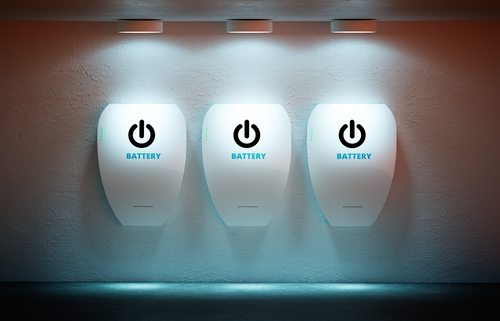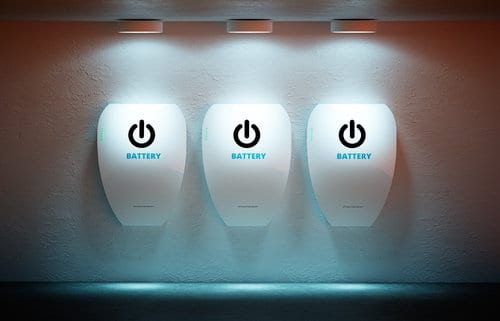

Here’s a summary of new batteries and new energy storage systems that have been announced in Australia in June and July 2016. The specs and prices, if released, are available on our constantly updated comparison table here.
Tesla Powerwall
Tesla have changed the Powerwall warranty to offer unlimited cycles and 10 years. Which is great. But they only warrant ‘normal degradation’. So we don’t know how to calculate warranted kWh for this because we don’t know what ‘normal degradation’ means. We’ve asked Tesla directly but had no response yet.
Redflow/Z-Cell
The Redflow ZBM-2 has been swapped for Z-cell. The Z-cell price is higher than the ZBM-2, due to the fancy new case. All other specifications are the same.
Zen Energy
Zen’s new Freedom Energy Banks’ pricing has been announced, and they are much cheaper than they used to be. 12.8kWh nominal for $19,750 fully installed. $21,750 for 16kWh and $23,750 for 19.2kWh. With 5kW of grunt, (upgradeable to 7.5kW on the biggest unit) and full backup, they look like really nice systems for big energy users.
The price per warranted kWh would be very competitive if it wasn’t for a 5 year control system warranty. If Zen could warrant the control system for 10 years, like the batteries, they’d have a very competitive cost per warranted kWh, considering you get full backup, installation and all the control gear included.
GCL E-KwBe
Chinese made, one of the cheapest options on the market. Most installers I’ve talked to are rightly or wrongly fairly wary about installing them, due to the low price. GCL seem to have a tough task ahead of them. They need to convince installers that the quality/reliability is there.
Mercedes-Benz energy storage
The priceing is still to be announced, but is expected to be firmly at the premium end of the market with its sleek, cast aluminium enclosure. All the specs we could dig out of Daimler are in the table.
Akasol NeeoQube
German made, very expensive, 7,000 cycles at 90% DoD, which is very impressive.
Hybrid “Home” Plus
Unique lead crystal technology. Has inherently safe chemistry compared to li-ion. Has a pretty low cycle life (2,400 cycles). It’s an all-in-one unit.
GridEdge Quantum
Sodium Nickel Chloride technology – which Grid Edge claim is inherently safer than lithium ion. Boasts a very impressive operating temp range (-20°C to 60°C) compared to every other battery tech. Is expensive though, at $20,000 for a nominal 9.6kWh all in one unit.
Sonnenbatterie
Another premium end of the market entrant. Boasts an insane cycle life and DoD (10,000 cycles at 100% DoD is claimed). Very narrow operating temp range (5 deg C to 40 deg C). Warranty is 10 years or 10,000 cycles whichever comes first, which means you’ll want to cycle it multiple times per day.
Downside is the power output – scales in increments of 0.5kW per 2kWh module from a base of 1.5kW to a max of 3kW single phase, 3.3kW three phase. You’d think at the price point they’d be able to offer a higher power output.
It’s also an all in one unit.
ABB React
From the billion dollar ABB, who have a huge inverter business. The price, off-grid capability, single/three phase compatibility and warranty are all yet to be announced.
Maximum amount of storage is only 6kWh, which seems very low. All in one unit.
Ampetus Energy Pod
Great power output, but a cycle life of only 2,000 cycles at 98% DoD. All in one unit.
Fusion Power Systems Titan-3
Uses Aquion batteries, all in one unit, pretty expensive, good IP rating (IP 56).
LG Chem
LG have just released a teaser of their new battery packs, but we don’t have enough specs to put them in the table. We expect pricing to be available by the end of August. Word on the street is that they are going to be very competitively priced.


